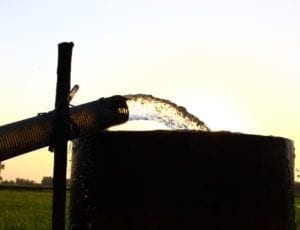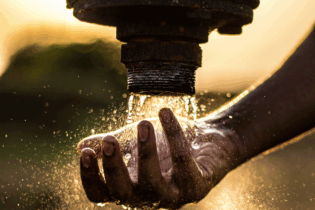Putting the National Development Plan into action means focusing on interventions that will have the greatest impact; building sustainable settlements with enough water is one such priority.
According to Dr Laetitia Coetser, associate partner and principal water and environmental scientist at SRK Consulting, the availability of water in South Africa’s municipalities will need to be prioritised as a critical enabler of future economic growth. Speaking after attending the recent Institute of Municipal Engineering of Southern Africa (IMESA) conference in Durban, Dr Coetser highlighted that social upliftment and economic growth are inevitably constrained by water shortages. “The growing demand for water – especially in our urban areas – calls for urgent and focused implementation of National Development Plan (NDP) imperatives,” she said. “This includes the necessary spatial development to build sustainable and safe human settlements, towns and rural areas, as well as effective local government.” The theme of the IMESA conference, ‘Conquering Municipal Challenges’, was well-aligned with the vision of the NDP, she noted. President Cyril Ramaphosa listed a range of NDP-linked priorities during his recent State of the Nation address, including economic transformation, job creation, quality basic services and investing in skills.“Drought adds further risk to municipalities’ water supply challenges, making good planning and execution even more urgent,” said Dr Coetser. “Water Conservation and Demand Management Plans (WCDMPs), for instance, are among the vital tools that can equip local government to ensure sustainable water supply to communities and businesses.”
A leading industry expert has also recently pointed out that – over the next six years until the Polihali Dam in Lesotho is completed – all Gauteng’s municipalities will have to keep their consumption static, despite the province’s population growth of 3% a year. This means that, to avoid a water crisis in the event of a drought between now and 2026, water use per person in the region is going to have to reduce by 3% every year. These and other aspects of water management – including water resource protection, treatment, stormwater and contamination – need skilled and integrated interventions to be regularly conducted. “A range of disciplines must be harnessed to plan and implement effective water management strategies – with tools such as water and salt balances, risk assessments and flow modelling,” she said. “The good news is that the sector has experts who can deliver this specialised input, and there are training programmes available for local government to enhance their capacity.”






